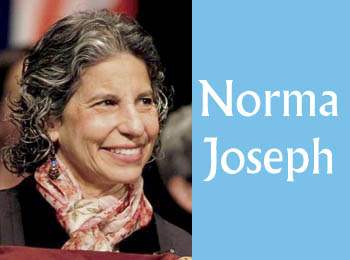We have just observed Passover, our eight-day holiday of liberation. We celebrate our freedom from slavery at this time every year and use the holiday as our freedom apparatus.
Focusing on issues of liberty and independence helps the holiday establish its relevance. In the past, we have set the table with place settings for Soviet Jewry as well as for other special causes.
In a religious framework, we say that, as God saved us, we are obligated now to turn around and redeem others. For the most part, Jews have been attentive and even resourceful in following that imperative. In both the religious and the secular communities, we have seen incredible dedication to the redemption of Jews. In fact, there has been a growing establishment working toward the recovery and improvement of all humanity.
My grandson was on a mission this past summer with a group of Jewish teenagers who went to Africa to help orphans there. They went as Jews to help non-Jews.
But there are a group of Jews who are off the radar for most of us. These are women waiting for their get – their Jewish divorce. They are in an enigmatic state of being married but in a dead marriage. Unable to get on with their lives, they are held hostage by men who no longer love them and no longer provide for them. And Jewish law as applied by its representatives enables them to do so!
What are we to do?
I have challenged our community for many years. During those years, we successfully asked the Canadian legislature to walk with us and work out an amendment that would ease the imbalance. We can be proud Canadians, for we have a law that helps our agunot, our women deprived of a Jewish divorce. But for full justice to be applied, for the redemption that Passover demands, we need and expect an application from within Jewish law. Pressure can come only from within the Jewish community.
So, to begin with, while Passover is fresh in our minds, we should listen to the story of an Agunah.
Then let’s ask our rabbis, local national and international: What are you doing to help this woman? Where are you in this matter?”
Recently, in one of our online discussion groups, our rabbis were insulted by the strident tone of the activists. In truth, the posting was angry and fed up with all rabbis at the wasted years during which so many women languished and so many useless marches were held.
High profile cases go on and on – here in Canada, in Washington D.C. and in Israel. What good does it do to put a man in jail? The women are still alone, living in poverty and bound by a dead marriage contract. Nothing has been done in the Orthodox world to end the systemic abuse of these women carried out in the name of Jewish law.
Many rabbis have worked on individual cases, have marched and spent long hours trying to convince men to release these women. These are dedicated rabbis, the “good guys.” And it is these men who reacted to our strident comments. But, while so many have worked tirelessly to help individual women, none has attacked the problem at its core.
The problem resides in the law. Listen carefully to what I am saying. There are solutions. (Not prenups. That is not a solution. No get has been given on the basis of a prenup.) I will write it again. There are solutions in Jewish law, systemic solutions. We have waited too long for rabbis of goodwill and strength to operationally apply those available to them.
Jewish law is based on classic principles and responsa precedents. It is complex, often confusing, and marvellously flexible within its own system and parameters. No body of legislators ever intended divorce law to imprison women within this horrible state that it has become. We call on our community to call upon their rabbis to do something systemic.
Yes, keep helping the individual, but also work toward building that solid block of rabbinic responsa and action that will legitimate final redemption of the system of divorce. While Passover’s message of freedom is still fresh in our minds is a good time to begin to free the system of this plague.
